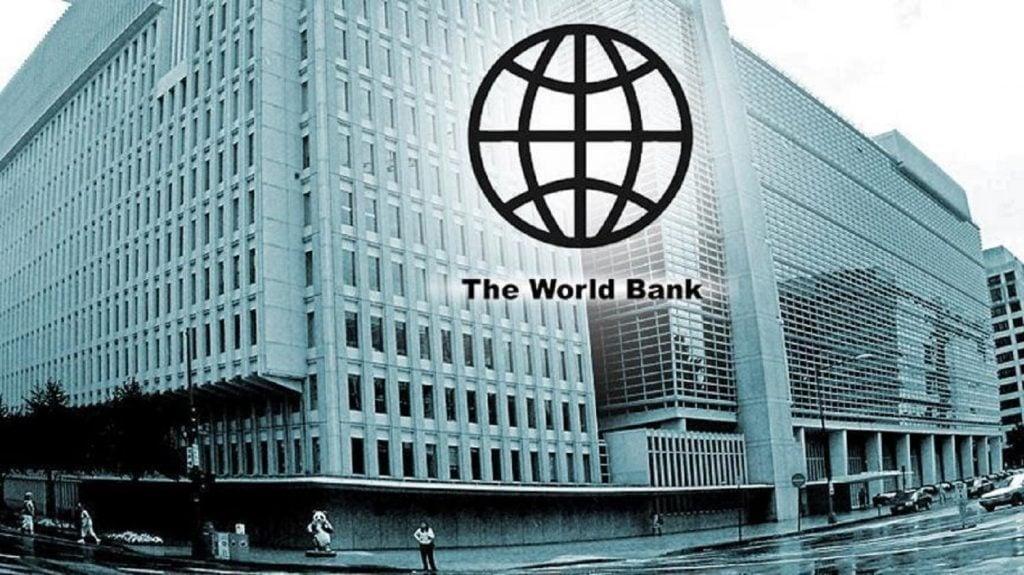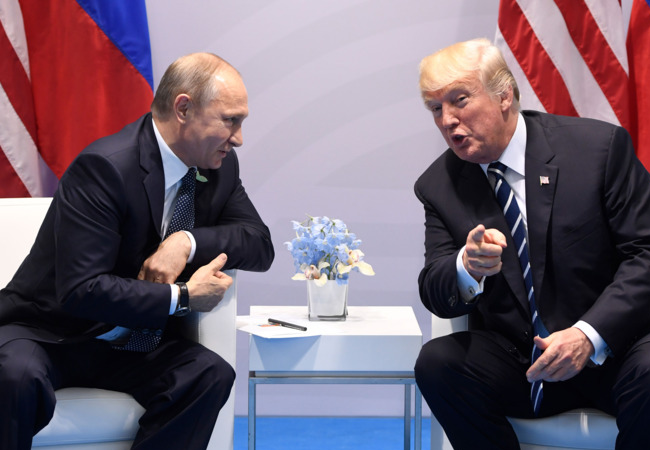Headline
W’Bank Bans Two Nigerian Companies, CEO Over Alleged Fraud

A statement by the Washington-based bank said the sanction follows findings of fraudulent, collusive and corrupt practices connected to the National Social Safety Nets Project in Nigeria.
The World Bank has imposed a 30-month debarment on two Nigerian companies, Viva Atlantic Limited and Technology House Limited, alongside their Managing Director and Chief Executive Officer, Norman Didam over alleged corrupt practices.
The 30-month debarment bars Viva Atlantic Limited, Technology House Limited, and Didam from participating in World Bank Group-financed projects and operations.
A statement by the Washington-based bank said the sanction follows findings of fraudulent, collusive and corrupt practices connected to the National Social Safety Nets Project (NSSNP) in Nigeria.
READ ALSO: Trump Signs Executive Order Ending Birthright Citizenship
The statement reads: “The World Bank Group today announced the 30-month debarment of two Nigeria-based companies, Viva Atlantic Limited and Technology House Limited, and their Managing Director and Chief Executive Officer Mr Norman Bwuruk Didam.
“The debarment is in connection with alleged fraudulent, collusive and corrupt practices as part of the National Social Safety Nets Project in Nigeria.”
The NSSNP was established to enhance Nigeria’s social safety net systems by providing targeted financial transfers to poor and vulnerable households.
However, the bank said investigations revealed serious breaches of its Anti-Corruption Framework in the 2018 procurement and subsequent contract processes involving Viva Atlantic Limited, Technology House Limited, and Didam.
According to the World Bank, the companies and Didam misrepresented a conflict of interest in their Letter of Bids and improperly accessed confidential tender information from public officials, constituting fraudulent and collusive practices.
READ ALSO: Keyamo Unveils Plans For Aircraft Manufacturing In Nigeria
Also, Viva Atlantic Limited and Didam were said to have falsified the company’s experience records and submitted forged manufacturer’s authorisation letters. They also provided inducements to public officials involved in the project, which qualified as corrupt practices.
The bank said these violations directly contravened the principles outlined in the World Bank’s Anticorruption Framework, prompting the sanctions.
The statement reads: “According to the facts of the case and the general principles of the World Bank’s Anticorruption Framework, in connection with a 2018 procurement and subsequent contract, Viva Atlantic Limited, Technology House Limited, and Mr Didam misrepresented a conflict of interest in the companies’ Letter of Bids and received confidential tender information from public officials, which constituted fraudulent and collusive practices, respectively.
READ ALSO: What Nigerians Should Know About Trump’s Order On American Birthright Citizenship
“Further, Viva Atlantic Limited and Mr Didam misrepresented Viva Atlantic Limited’s experience and submitted falsified manufacturer’s authorisation letters, as well as offered and provided things of value to project public officials. These actions were fraudulent and corrupt practices, respectively.”
As part of settlement agreements with the World Bank, the statement said all three parties acknowledged their culpability and agreed to stringent integrity compliance conditions as a prerequisite for being released from debarment.
Headline
UK Supported US Mission To Seize Russian-flagged Oil Tanker – Defense Ministry

The British Ministry of Defence said on Wednesday that it provided support to the United States in its operation to seize a Russian-flagged oil tanker in the North Atlantic.
US seized the tanker, which was being shadowed by a Russian submarine on Wednesday, after pursuing it for more than two weeks across the Atlantic as part of Washington’s efforts to block Venezuelan oil exports.
According to Britain, its armed forces gave pre-planned operational support, including basing following a US request for assistance.
READ ALSO:UK Introduces Powers To Seize Phones, SIM Cards From Illegal Migrants
The UK also said a military vessel provided support for the US forces pursuing the tanker, and the Royal Air Force provided surveillance support from the air.
Defence Secretary John Healey stated that the operation targeted a vessel with a nefarious history linked to Russian and Iranian sanctions evasion networks.
“This action formed part of global efforts to crack down on sanctions busting,” he said in a statement.
READ ALSO:Venezuelan Deportees: US Embassy Gives Reason For Reducing Visa Validity For Nigerians
According to him, the US was Britain’s closest defence and security partner.
“The depth of our defence relationship with the US is an essential part of our security, and today’s seamlessly executed operation shows just how well this works in practice,” he added.
The British government said that the Bella-1 tanker, now renamed Marinera, is sanctioned by the US under its counter-Iran sanctions,
The MoD statement said the support was provided in full compliance with international law.
Headline
Russia Deploys Navy To Guard Venezuelan Oil Tanker Chased By US In Atlantic

Russia has deployed naval assets to escort a sanctioned oil tanker across the Atlantic following reported moves by the United States to seize the vessel.
US forces were said to be preparing to board the ship, which has a history of transporting Venezuelan crude oil and was last believed to be sailing between Scotland and Iceland.
CBS News reported that Russia stepped in to protect the tanker, raising the prospect of a direct confrontation between the two powers at sea.
READ ALSO:Russia Calls up 135,000 Military Personnel
By sending naval ships into the North Atlantic, Russian President Vladimir Putin is signalling to United States President Donald Trump that any US action would carry consequences, coming after the US president threatened that he might use the military to seize Greenland.
The tanker, currently empty, previously operated under the name Bella 1. Last month, the US Coast Guard attempted to board it in the Caribbean with a warrant over alleged breaches of US sanctions and claims that it had shipped Iranian oil.
The vessel later changed course, renamed itself Marinera and reportedly reflagged from Guyana to Russia.
READ ALSO:Venezuela Frees Eight Opposition Leaders
Trump last month said he had ordered a ‘blockade’ of sanctioned oil tankers entering and leaving Venezuela, a policy the government in Caracas branded ‘theft’.
Ahead of the US seizure of ousted Venezuelan leader Nicolás Maduro on Saturday, Trump accused the country’s government of using ships to smuggle drugs into the United States.
Two US officials told CBS News on Tuesday that American forces were planning to board the Marinera, adding that Washington would prefer to seize the tanker rather than sink it.
Russia’s Foreign Ministry said it expects Western countries to respect principles of freedom of navigation.
(Daily Mail News)
Headline
UK Introduces Powers To Seize Phones, SIM Cards From Illegal Migrants

The United Kingdom has rolled out expanded enforcement powers allowing authorities to confiscate mobile phones and SIM cards from migrants who enter the country illegally.
The new measures, which do not require an arrest, came into force on Monday at the Manston migrant processing centre in Kent and represent a significant tightening of border controls.
According to the Home Office, the powers are intended to support intelligence-gathering operations aimed at disrupting criminal networks that organise and profit from dangerous Channel crossings.
Officials at the centre are equipped with technology that enables them to extract and analyse data from seized devices, a move the government says will help track and dismantle smuggling rings.
READ ALSO:Russia-Ukraine War: Pope Leo Calls For Global Christmas Truce
Under the revised rules, migrants are permitted to be asked to remove outer garments if there is suspicion that phones are being concealed.
In certain circumstances, officers may also check mouths for hidden SIM cards or small electronic items.
The National Crime Agency said information recovered from devices could accelerate investigations and improve the effectiveness of action against organised crime groups.
Border Security Minister Alex Norris said the policy was necessary to regain control of the UK’s borders and confront human trafficking operations.
“We are committed to restoring order and tackling the people-smuggling gangs behind this lethal trade,” Norris said.
READ ALSO:
“These stronger laws give authorities the tools to disrupt, intercept and dismantle these networks more quickly and effectively,” he added.
The legislation also introduces tougher criminal penalties linked to illegal crossings.
Individuals found storing or supplying boat engines for unauthorised journeys could face prison terms of up to 14 years, while those involved in researching equipment or plotting routes may be liable to sentences of up to five years.
Government officials stressed that the powers would be exercised with discretion.
READ ALSO:UK Unveils Record-breaking Bid For 2035 Women’s World Cup
The Minister for Migration and Citizenship, Mike Tapp, said devices could be returned depending on individual circumstances and the relevance of the information obtained.
“If a device may contain intelligence that helps combat smuggling, it is right that it can be seized,” Tapp said, adding that the approach would not undermine compassion toward migrants.
However, humanitarian organisations have expressed unease about the impact of the policy.
The Refugee Council warned that mobile phones often serve as vital lifelines for migrants, enabling contact with family members and access to support services, and urged authorities to ensure the measures are applied in a proportionate and humane manner.

 News3 days ago
News3 days agoWhat I Saw After A Lady Undressed Herself — Pastor Adeboye

 Headline3 days ago
Headline3 days agoPROPHECY: Primate Ayodele Reveals Trump’s Plot Against Tinubu

 Metro3 days ago
Metro3 days agoArmed Robbers Shot PoS Operator To Death In Edo

 Metro2 days ago
Metro2 days agoAAU Disowns Students Over Protest

 Metro2 days ago
Metro2 days agoNine Soldiers Feared Dead In Borno IED Explosion

 Politics3 days ago
Politics3 days ago2027: Rivers APC Pledges To Follow Wike’s Instructions

 Business2 days ago
Business2 days agoNNPCL Reduces Fuel Price Again

 Metro2 days ago
Metro2 days agoEdo: Suspected Kidnappers Kill Victim, Hold On To Elder Brother

 Metro3 days ago
Metro3 days agoJoint Task Force Kills 23 Bandits Fleeing Kano After Attacks

 Entertainment3 days ago
Entertainment3 days agoPHOTOS: Anthony Joshua Makes First Social Media Post After Surviving Deadly Car Crash






























